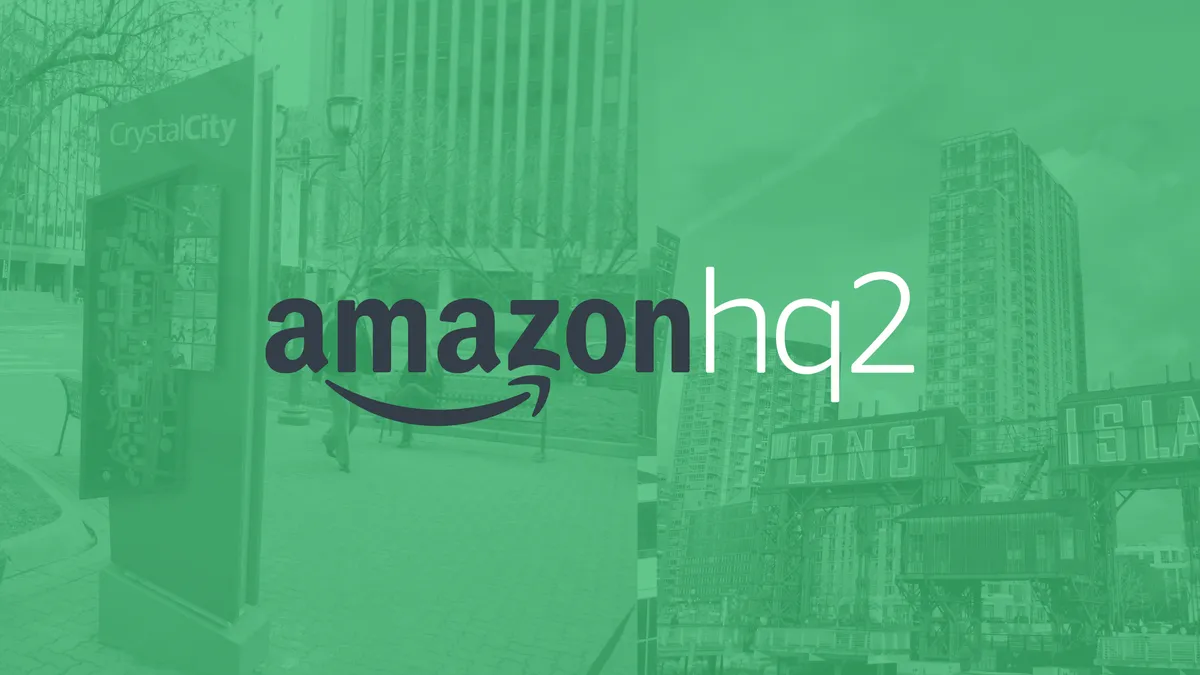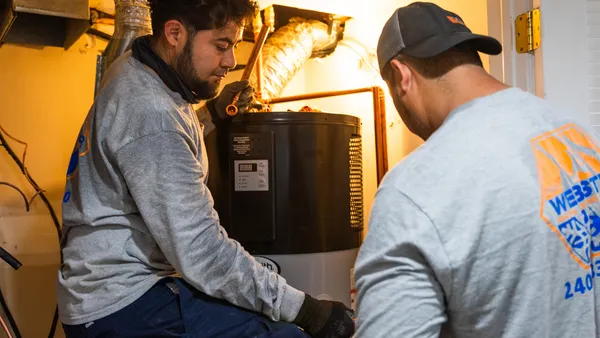Dive Brief:
- Amazon confirmed on Tuesday it has selected Long Island City in New York City and National Landing in Arlington, VA as the two locations for its new headquarters (HQ2).
- Long Island City and Arlington will both benefit from more than 25,000 full-time jobs; approximately $2.5 billion in Amazon investment and four million square feet of energy-efficient office space, according to a release. Long Island City is anticipated to benefit from an incremental tax revenue of more than $10 billion over the next 20 years, while the incremental tax revenue in Arlington is estimated at more than $3.2 billion over the same period of time.
- Amazon also announced it will open a new Operations Center of Excellence in Nashville, TN, which will result in 5,000 full-time jobs; over $230 million in investment; one million square feet of energy-efficient office space; and an estimated incremental tax revenue of more than $1 billion over the next 10 years, according to the release.
Dive Insight:
This announcement from Amazon had been long anticipated since the company released the 20 finalists for HQ2 nearly a year ago, and the chosen locations are far from surprising. Both cities have an educated workforce and reputations as growing tech hubs, while they are already home to company employees in other roles. The New York Times notes about 1,800 people already work in advertising, fashion and publishing for the company in New York, while Amazon has 2,500 people in technical and corporate roles in Northern Virginia and Washington, DC.
Despite both locations being seemingly well-situated to welcome HQ2, the news of split headquarters was not entirely well received. When rumors about the co-located headquarters spread last week, some media outlets declared the months-long process to pick a second headquarters was a "massive sham."
And this week, in a New York Times opinion piece dubbed "New York Should Say No to Amazon," authors Ron Kim and Zephyr Teachout wrote, "For the past year, Amazon has been promoting a cruel tournament, asking cities to compete for the privilege of hosting a second headquarters outside Seattle — what the company called 'HQ2.' The winner was promised tens of thousands of jobs and the tempting vision of becoming a tech hub to rival San Francisco. Hundreds of cities prostrated themselves before Amazon, offering the company tax breaks and subsidies along with valuable data, such as infrastructure plans, to which no other company had access."
However, the split headquarters may not be such a bad deal for either city. By halving the number of new employees in each location, Amazon is easing the strain the headquarters would have on infrastructure, including traffic, public transit and housing, which have all been squeezed in the DC and New York City regions.
The Seattle Times reported the company was "wary" of a repeat of what has happened in Seattle, where its main headquarters is located, and has been blamed for a growing homelessness crisis and a lack of affordable housing.
While there will likely not be an immediate impact on either of these cities following the announcement, industry leaders — especially folks in the transportation and housing markets — would be wise to keep an eye on development in both locations.
"These two locations will allow us to attract world-class talent that will help us to continue inventing for customers for years to come. The team did a great job selecting these sites, and we look forward to becoming an even bigger part of these communities," Amazon CEO Jeff Bezos said in a statement.












